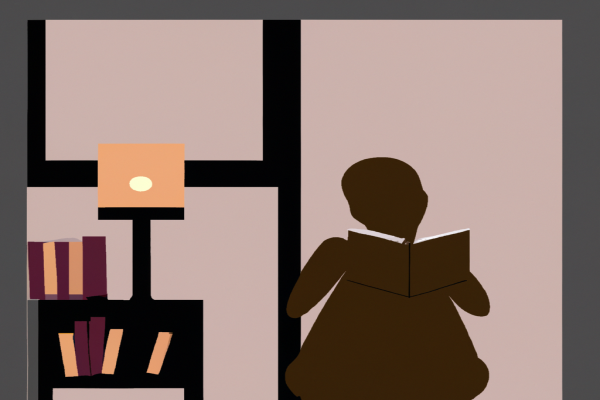1984: Summary

1984 is a dystopian novel by George Orwell published in 1949. It tells the story of Winston Smith, an average citizen living in Oceania, a totalitarian state that is constantly monitored and policed. Winston secretly rebels against the oppressive government, but eventually realizes that he cannot escape their control. He is tortured and brainwashed into accepting the government's authority, and ultimately discovers the power of love in the face of extreme hardship. The novel serves as a warning about the dangers of totalitarianism and authoritarianism, and remains one of the most powerful works of literature written in the 20th century.
Want to know more?
What is 1984 about?
1984 is a dystopian novel by George Orwell set in the year 1984. It follows the life of Winston Smith, a low-ranking member of the ruling Party in a fictional post-World War II London. The book explores themes of authoritarianism, surveillance, manipulation, and power. One of the main themes explored in 1984 is the ability of an authoritarian government to manipulate and control its citizens through fear and oppression. The Party has complete control over its citizens, using surveillance systems such as telescreens to monitor their behavior. They also use propaganda to instill fear in its citizens and control their thoughts and actions. The theme of truth and manipulation is also explored throughout the novel. The Party manipulates language and history to suit their own agenda and present a false version of reality to its citizens. Winston’s attempt at finding truth in a world where everything is controlled by lies is one of the main conflicts of the novel. The concept of self-determination is also discussed in 1984 as Winston struggles with his own identity within the oppressive society he lives in. He must decide if it's worth trying to rebel against the Party or if it's better to accept his role as a loyal citizen within this totalitarian regime. Overall, George Orwell's 1984 is an exploration into the dangers of an authoritarian government taking control over personal freedom and individuality. It warns readers about how easily governments can manipulate citizens and distort our perception of reality if we allow them too much power.
1984: Book Club Questions
- What was the significance of Big Brother to the story?
- How did Winston's relationship with Julia reflect the themes of the book?
- What do you think is the most important message in 1984?
- How did language and communication play a role in the novel?
- What was the purpose of Doublethink in Orwell's vision of a dystopian future?
- In what ways is 1984 still relevant today?
- What were some of the key metaphors used throughout the novel?
- How did the Party maintain control over its citizens?
- What is your interpretation of Winston's final act at the end of the novel?
- How does 1984 compare and contrast with other dystopian novels?
What to say about 1984
- Orwell paints a hauntingly realistic picture of an authoritarian society, making readers acutely aware of the impact of oppressive systems.
- 1984 is a timeless classic that still resonates in today's political climate, as many of its themes remain relevant today.
- The characters in 1984 are complex and multifaceted, allowing readers to explore the nuances of the story's themes.
- The language used in 1984 is thought-provoking and poetic, inviting readers to contemplate the power of words and their meanings.
- The use of doublethink throughout the novel highlights the insidiousness of totalitarian regimes and their ability to distort reality for their own ends.
- The juxtaposition of freedom and oppression in 1984 serves as a stark reminder that freedom can easily be taken away if we are not vigilant.
- It is remarkable how Orwell was able to anticipate many of the modern surveillance techniques employed by governments around the world today.
- 1984 is an important exploration into how power is abused and how individuals can strive against it even under extreme duress.
- One cannot help but be moved by Winston's courage in the face of overwhelming odds, showing us how even small acts of resistance can make a difference.
- Despite its grim subject matter, 1984 contains moments of subtle humor that provide some much needed levity throughout the novel.
Top 5 Quotes from 1984
- "War is peace. Freedom is slavery. Ignorance is strength."
- "Big Brother is watching you."
- "Who controls the past controls the future. Who controls the present controls the past."
- "Power is in tearing human minds to pieces and putting them together again in new shapes of your own choosing."
- "If you want a picture of the future, imagine a boot stamping on a human face—forever."
Adaptations of 1984
TV: 1. 1984 (1954, BBC) 2. Nineteen Eighty-Four (1954, BBC) 3. Big Brother UK (2000, Channel 4) 4. The Handmaid’s Tale (2017, Hulu) 5. Brave New World (2020, Peacock) Film: 1. Nineteen Eighty-Four (1984, Michael Radford) 2. Brazil (1985, Terry Gilliam) 3. V for Vendetta (2005, James McTeigue) 4. The Hunger Games Series (2012-2015, Gary Ross) 5. Equilibrium (2002, Kurt Wimmer) Radio: 1. Nineteen Eighty-Four Radio Drama (1981, BBC Radio 4) 2. The Ministry of Truth – A 1984 Radio Play (2019, BBC Radio 4) Podcast: 1. 1984 Explored Podcast Series (2018, History Hit Network) 2. In Our Time – George Orwell's 1984 (2019, BBC Radio 4) 3. The Orwellian Podcast Series (2020, iHeartMedia & Global Citizen) 4. Brave New Words Podcast Series (2020, BBC World Service) 5. 1984 and the Age of Surveillance Capitalism Podcast Series (2020, University of Pennsylvania Press & PennSound) Theatrical: 1. 1984 the Musical (1973, Off-Broadway Production at the Actor's Playhouse Theater in NYC) 2. Nineteen Eighty-Four: A Musical Adaptation of George Orwell’s Novel (2013, American Repertory Theater in Cambridge MA)
Other books by George Orwell
- Animal Farm
- Burmese Days
- Coming Up for Air
- A Clergyman's Daughter
- Keep the Aspidistra Flying
- The Road to Wigan Pier
- Homage to Catalonia
- Down and Out in Paris and London
- The Lion and the Unicorn: Socialism and the English Genius
- Such, Such Were the Joys
Did you know?
The Apple Macintosh computer was released in 1984.




